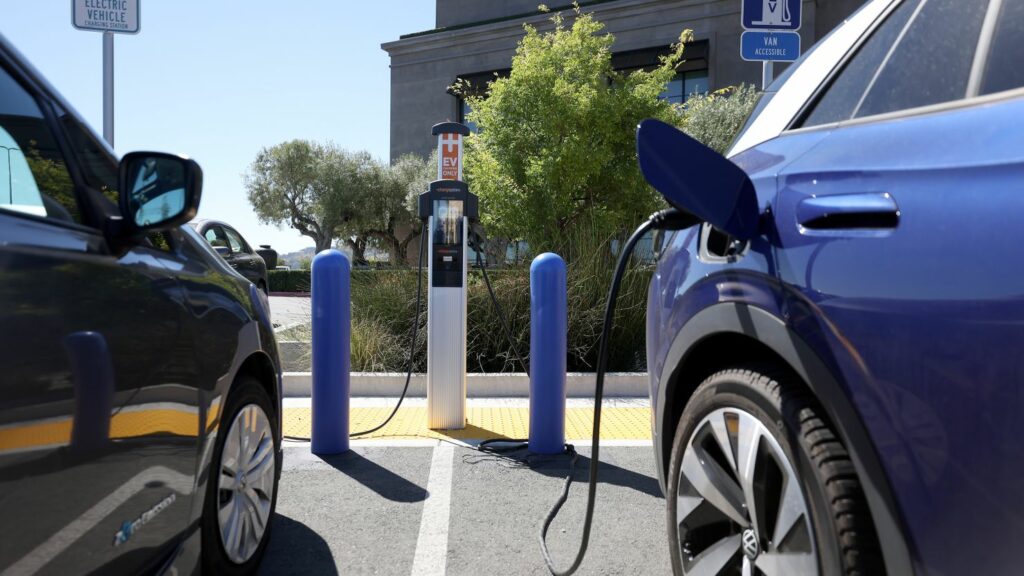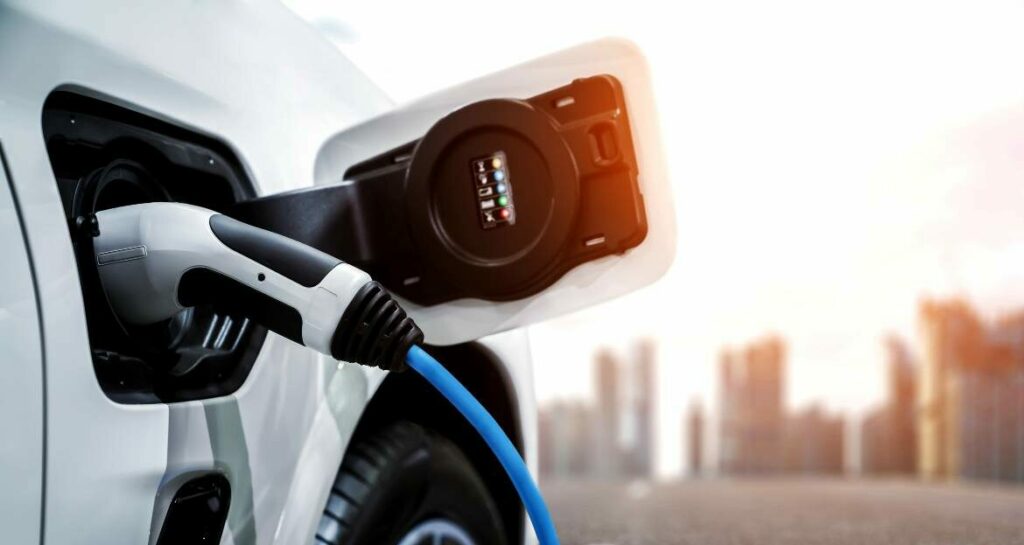One odd thing about climate alarmists is that, with rare exceptions, they tend to hold to a broad philosophy that nothing humans do can ever be good, not even when it’s supposedly done to benefit the environment. This dark outlook is captured, somewhat queasily, by a recent paper entitled “A wolf in sheep's clothing: Exposing the structural violence of private electric automobility”. When you run into such laboured terminology you know that you are deep in the realm of postmodernism where truth is simultaneously denied and asserted to exist in left-wing orthodoxy. And so it is that, the wolf’s abstract claims, “The world is running out of time to avoid cataclysmic climate impacts.” But “the electrification of private automobility is neither effective nor equitable” and instead “not only maintains existing inequities but also increases social injustice”. So everyone will have nothing and be happy… or else.
There is something hallucinatory about prose such as “using private EVs structurally violates the biosphere and human communities in three ways: (1) production of inequities, (2) pollution and waste, and (3) the space of the exception (the ‘Electric Vehicle Bubble’).” The “space of the exception” is something that exists only in the minds of people profoundly alienated, from their society, from reality and indeed from their own human experience.
For instance the declaration that “This study analyses the structural violence produced by EVs.” Structural violence being the strange kind where nobody gets hurt, just as social justice so often doesn’t involve anything that reminds people of actual justice. No, really; the paper goes on to explain that “Unlike direct violence that a person imposes on another person, structural violence demonstrates itself in a structure in which direct harm does not necessarily occur.” And in case you thought we were being sarcastic, the authors assure us ponderously that “From this perspective, structural violence and social injustice can be used interchangeably”. Told you so.
Of course in this vision we also get class oppression “with the upper class dominating social resources” which again aren’t like the resources you can actually touch but which have to do, awkwardly, with the high status of, say, academics at Trinity College, Dublin or the School of Social Sciences, Södertörn University. And you get “neocolonialism”, and the “privilege” afforded by “’the space of the exception’”. And false consciousness: “As long as the bubble exists, observers are impotent to recognise and speak of what is or is not pro-environmental behaviour, as well as the sustainability or unsustainability of this shift to EVs.” Though mercifully it spares these authors.
And this kind of mental contortion naturally finds an outlet in beliefs like “eradicating private automobility is necessary to realise climate and transport justice.”
What exactly all these abstractions are thought to mean is not readily apparently. For instance “Focusing on inclusive strategies, such as supporting public transportation, shared mobility, and active travel modes”. What might the latter be, if not forced walking even if you are frail and live somewhere that winter is not kind? And of course the punchline is that these methods, “instead of offering incentives for EVs, are the means of progressive redistribution of wealth and can satisfactorily meet people's basic needs and governmental climate targets.”
Redistribution of wealth. Owning nothing and being happy. Who saw those coming? But it would be a profound error to assume therefore that it’s “not about climate” or that climate alarmism is some sort of hoax perpetrated to further the goals of the WEF.
Rather, these people really talk this way because they really think this way, including that all good things are bundled together as are all bad ones including old-fashioned plain speech. Remember Orwell’s point that:
“The purpose of Newspeak was not only to provide a medium of expression for the world-view and mental habits proper to the devotees of Ingsoc, but to make all other modes of thought impossible. It was intended that when Newspeak had been adopted once and for all and Oldspeak forgotten, a heretical thought – that is, a thought diverging from the principles of Ingsoc – should be literally unthinkable, at least so far as thought is dependent on words.”
In some sense it would make all modes of thought impossible, or at least any that corresponded in any way to actual things in the world like “my car.” Instead you get “private automobility” which is double-plus-ungood. Moreover in Newspeak:
“There was no vocabulary expressing the function of Science as a habit of mind, or a method of thought irrespective of its particular branches. There was, indeed, no word for ‘Science,’ any meaning that it could possibly bear being already sufficiently covered by the word Ingsoc.”
Or “settled science” if you prefer.



In all human societies since the dawn of time there have always been people who rise to the top and then face the problem of how to remain at the top. In some societies it's done by brute force, in others by convincing everyone else that disobeying the rules is a deep moral failure. The private automobility concept reviewed here is just one more, and rather clumsy, attempt at the latter.
It was those irreverent Americans, spearheaded by Henry Ford, who introduced the idea of everyone being able to go anywhere whenever they pleased. The elites have been trying to quash this idea ever since.
Where your analogy breaks down is that in "1984," there really was an elite class of rulers who were hoaxing the people, by making up wars with constantly shifting alliances, by changing recorded history through the Ministry of Truth, etc. Same in "Brave New World," where the genetic designers created castes who were useful to them and socialized them to accept their position in society. You seem to think that all of the manipulation that goes on in society these days can be achieved without any kind of loose co-ordination among those with power.
The ruling elites always self-consciously perpetuate myths favourable to their interests by controlling the narrative. In fiction, the methods are typically crude; but in modern life, the means of social control are more subtle. The ruling elites establish and fund NGOs and foundations and governing institutions, and pick the people who fill the roles in these organizations; they pay media to promote certain narratives; they own the universities and overwhelmingly fund the "science" they want people to believe.... If you don't automatically agree with what the ruling elites proclaim, you are demonized and isolated, relegated to second-class status, denied the travel and consumerisms of regular life. They even monopolize the health-care system and deny it to those who don't play their game. Dissidents are made a pariah, a leper in their own community.
The greatest trick in the elite ruling class bag of tricks is to label anyone who dissents from the desired narrative a "conspiracy theorist." It's a trick straight out of C.S. Lewis's "Screwtape Letters." They have made "conspiracy theorist" the most shameful thing one could be called - a perfect shield for the wealthy ruling conspirators! The devil doesn't exist, and there are no conspiracies. As usual, conservatives have pre-conceded on all of this, too.
IT IS THE MANIFESTATION OF PURE EVIL. SOCIETY IS FOR THE BENEFIT OF THE MASSES OR ITS NOT FUNCTIONING. MOBILITY IS NOT A PRIVELEGE ,ITS A RIGHT.
I believe the proper clinical term for this type of thinking is "batshit crazy".